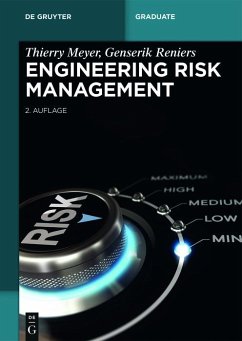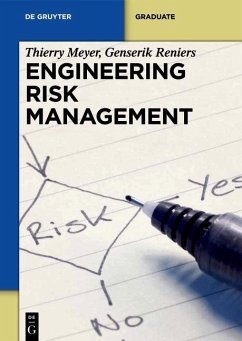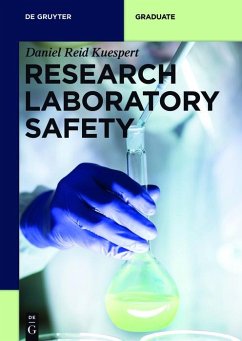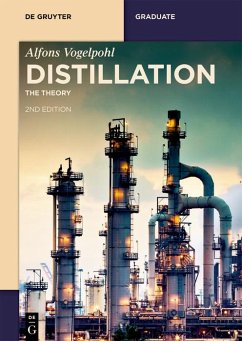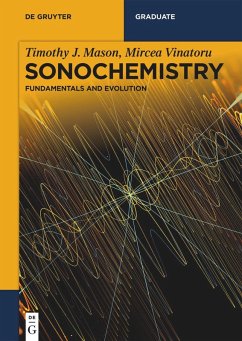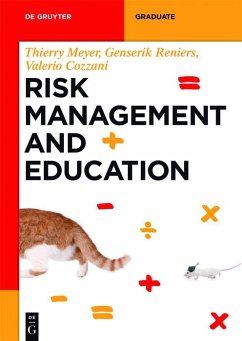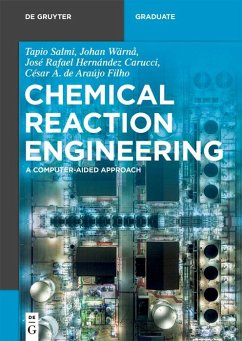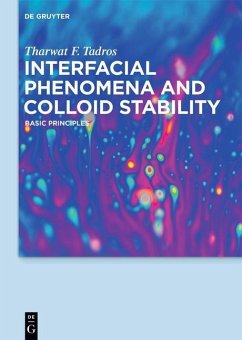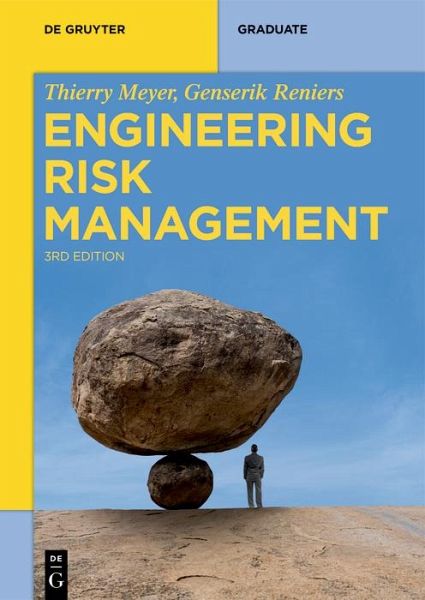
Engineering Risk Management (eBook, ePUB)
Versandkostenfrei!
Sofort per Download lieferbar
63,95 €
inkl. MwSt.
Weitere Ausgaben:

PAYBACK Punkte
32 °P sammeln!
This book is a valuable resource for achieving and promoting a culture of risk awareness and integrating risk management principles and practices into the educational environment.This integration is essential to ensure that students have the knowledge and skills to identify hazards, and assess and control risks in different contexts through the development and implementation of a risk management curriculum. Besides theoretical considerations and learning to ask the right questions at all times for the sake of critical thinking, effective risk management education also involves the use of case ...
This book is a valuable resource for achieving and promoting a culture of risk awareness and integrating risk management principles and practices into the educational environment.
This integration is essential to ensure that students have the knowledge and skills to identify hazards, and assess and control risks in different contexts through the development and implementation of a risk management curriculum. Besides theoretical considerations and learning to ask the right questions at all times for the sake of critical thinking, effective risk management education also involves the use of case studies, simulations and other experiential learning tools to help students understand and apply risk management concepts in real-life situations. This approach helps students develop a questioning attitude and problem-solving skills, which are essential for effective risk management.
Overall, the interface between risk management and education is essential to develop a generation of professionals who can effectively deal with risks in a variety of contexts. By integrating risk management principles and practices into the educational process, educational institutions can help ensure that their students are well prepared to meet the challenges of the modern world.
This integration is essential to ensure that students have the knowledge and skills to identify hazards, and assess and control risks in different contexts through the development and implementation of a risk management curriculum. Besides theoretical considerations and learning to ask the right questions at all times for the sake of critical thinking, effective risk management education also involves the use of case studies, simulations and other experiential learning tools to help students understand and apply risk management concepts in real-life situations. This approach helps students develop a questioning attitude and problem-solving skills, which are essential for effective risk management.
Overall, the interface between risk management and education is essential to develop a generation of professionals who can effectively deal with risks in a variety of contexts. By integrating risk management principles and practices into the educational process, educational institutions can help ensure that their students are well prepared to meet the challenges of the modern world.
Dieser Download kann aus rechtlichen Gründen nur mit Rechnungsadresse in A, B, BG, CY, CZ, D, DK, EW, E, FIN, F, GR, HR, H, IRL, I, LT, L, LR, M, NL, PL, P, R, S, SLO, SK ausgeliefert werden.




